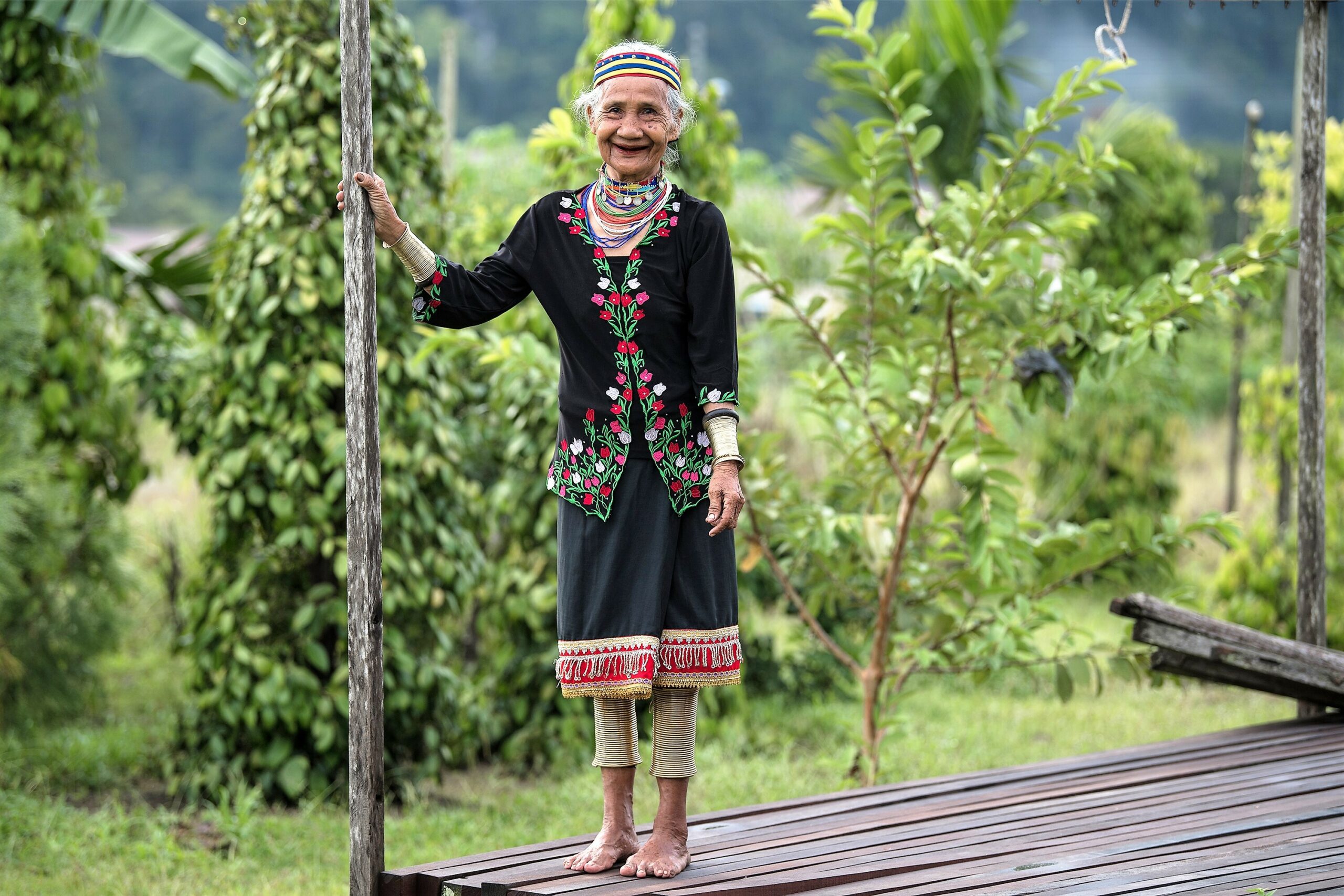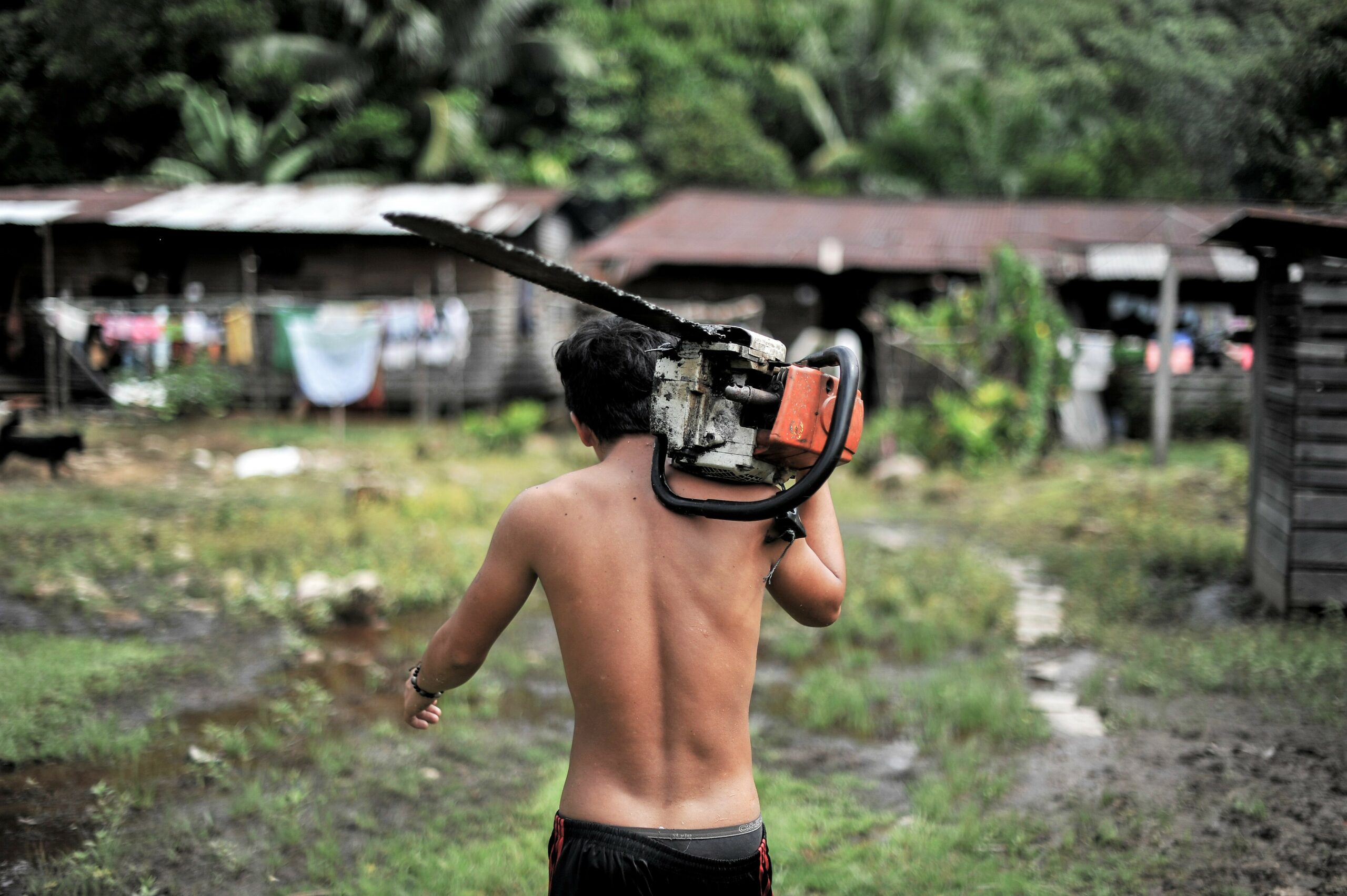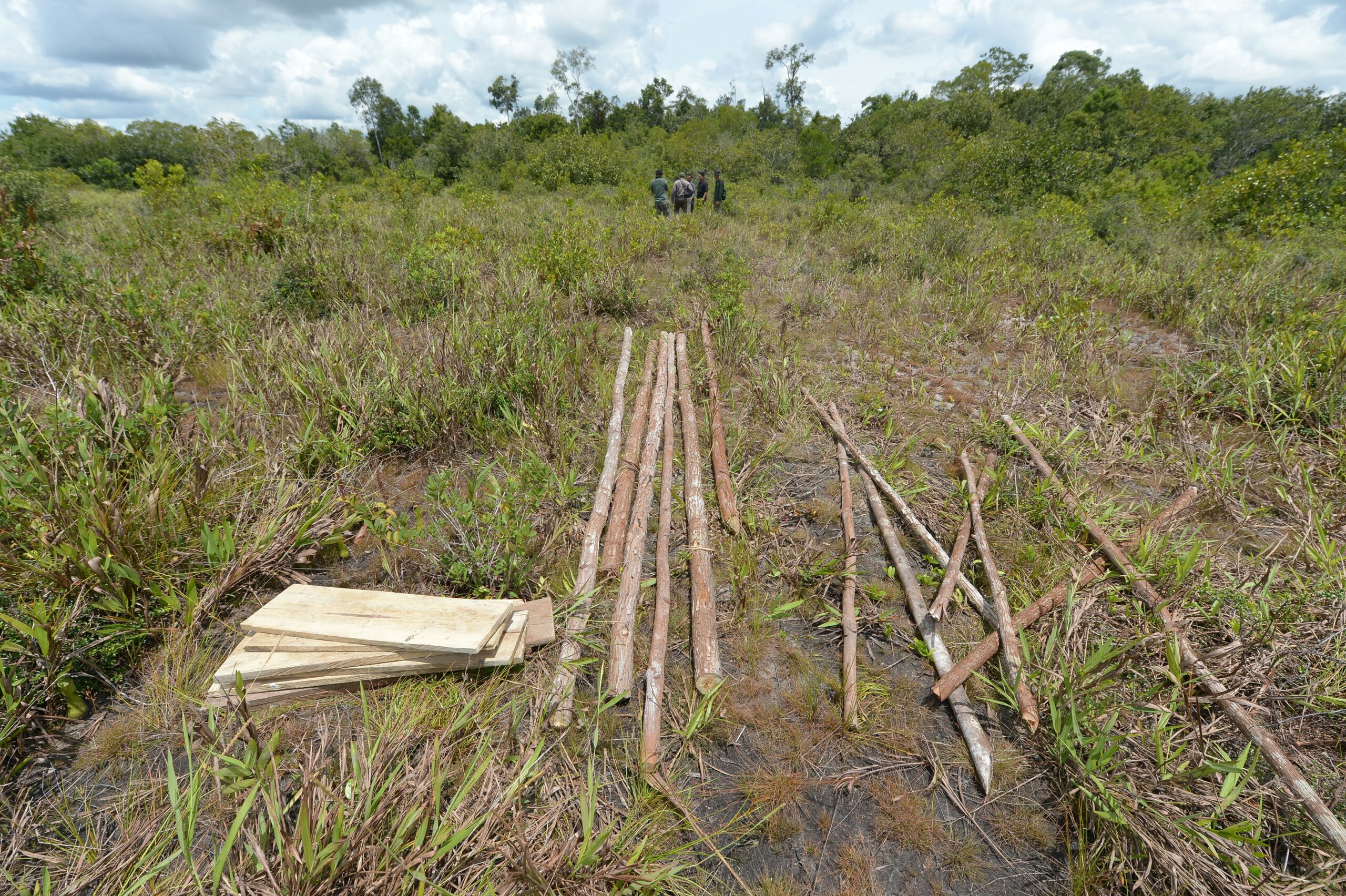Things seemed to be looking up in May 2021 for 36 indigenous communities fighting logging concessions in Malaysia’s Sarawak state.
Subsidiaries of Samling Group, a Malaysian conglomerate, were certified to log forest areas across more than 2,500 square kilometres (965 square miles) in Sarawak, located on the island of Borneo. The Penan, Kenyah and Jamok communities native to the area argued the concessions were granted without their informed consent and lodged a complaint with the Malaysian Timber Certification Council (MTCC).
“The communities involved are very hopeful,” Penan leader Komeok Joe told Al Jazeera.
A month later, Samling filed a defamation lawsuit in excess of $1 million against SAVE Rivers, a nonprofit organisation supporting the communities and publicising the conflict. Since then, community groups said, the lawsuit has effectively stalled the complaint.
The lawsuit fits a pattern becoming increasingly common in the Global South, according to advocates. Referred to as “Strategic Lawsuit Against Public Participation” (SLAPP), the cases involve powerful corporate actors levying defamation or slander charges against communities, activists or journalists with far less resources.
“The logging has continued. SAVE Rivers is now silenced because they can’t say anything because of the SLAPP suit,” said Jettie Word, executive director of The Borneo Project, a forest protection group.
In a letter to the MTCC, Sarawak leaders and support organisations declared the lawsuit to be a SLAPP and called on the council to safeguard against similar litigation.
“This sets a worrying precedent: Inspired by Samling’s lawsuit against SAVE Rivers, any certified company may in the future bring forward a lawsuit against a well-intentioned complainant, the lawsuit will silence local opposition and delay the complaints process,” the letter said.

Lawsuits falling into the SLAPP realm typically involve a few key characteristics. They are carried out by private actors such as corporations against groups or people with less resources. They also target public participation such as activism, advocacy or journalism and tend to involve high damages or exorbitant demands.
The purpose of such suits is not necessarily to win, according to experts. They are instead meant to silence criticism and drain the defendants of funds through a court system that gives their claims a veneer of legitimacy.
Although there isn’t comprehensive global data available about SLAPPs, in the Global South they have tended to be in the agriculture and mining industries, said Nikhil Dutta, a global legal adviser at the International Center for Not-for-Profit Law who recently penned a report on the phenomenon.
“You’re trying to make a SLAPP masquerade as an ordinary lawsuit, and that’s part of the SLAPP’s power, is that it looks like an ordinary and legitimate lawsuit, even though it’s really being filed for the purposes of harassment and to drain the resources of people being targeted,” Dutta said, adding that ICNL anecdotally has received an increasing number of reports of SLAPPs filed in the Global South in recent years.
More than a dozen American states have enacted anti-SLAPP laws, along with parts of Canada and Australia. But those interventions are fewer in Southeast Asia, where Thailand, the Philippines and Indonesia are the only countries to protect against SLAPP suits through reforms that have had varying degrees of success, according to Dutta.
You’re trying to make a SLAPP masquerade as an ordinary lawsuit, and that’s part of the SLAPP’s power”
Nikhil Dutta, global legal adviser at the International Center for Not-for-Profit Law
Malaysia does not have specific legislation to prevent SLAPPs, though in 2016 the Malaysia Court of Appeal upheld the dismissal of a libel and slander case against activists who spoke out against a mining company. The decision commended the activists’ contributions to society.
Organisations supporting the Sarawak communities said Samling’s lawsuit follows the pattern. They argued in the MTCC letter that press releases and publications Samling deemed defamation merely expressed “legitimate community concerns” and the company seemed to be delaying the complaint process with the lawsuit.
The lawsuit’s $1.18 million damage request stems from harm supposedly incurred by seven SAVE Rivers press releases published over about 18 months, though the lawsuit did not detail exact losses, according to an August 2021 Mongabay report. The complaint also targeted four SAVE Rivers directors.
“Of course there is a chilling effect,” said Lukas Straumann, executive director of the environmental and human rights organisation Bruno Manser Fund, which supports SAVE Rivers and co-signed the letter.
“As soon as you go to court – or a big player goes to court – with a lot of money behind them, and a lot of political support, then things start changing,” he said.
“Being sued means that you have become dangerous to the persons who are suing you,” Straumann said. “Usually they would ignore you. And for many years they ignored SAVE Rivers, but apparently they realised, ‘This is getting dangerous so we have to do something.’ Using the legal system to your advantage is something very handy.”
Samling did not respond to a request for comment on the case. In the past, the company has denied the allegations and published statements refuting media articles, including a recent post addressing the SLAPP characterisation.
“With all efforts for an amicable resolution having failed, Samling was left with little choice but to institute a legal suit against Save Rivers in order to defend and safeguard its reputation and business interests, as well as to preserve the integrity of the certification body,” Samling said.
“Instead of continuously labelling the Samling suit as an ‘alleged SLAPP suit,’ the two bodies should present their case to the Court and allow the Court to decide the rights and wrongs of the case,” the company added.

As recognition of SLAPP suits rises, defendants have often defeated them and even seen sanctions against plaintiffs. But the costs can include time, money and reputation.
In South Africa, Wraypex Pty. Ltd. sued several conservationists who put forth a complaint about the company’s proposed luxury development, according to the ICNL report. A court dismissed the case in 2011 and ordered Wraypex to pay damages, referring to the litigation as “vexatious,” economically “purposeless” and “if anything was more harmful to the Plaintiff than the words complained of.”
In a 2021 case, South Africa’s High Court deemed defamation lawsuits by an Australian mining company against activists to be SLAPP activity, with the judge adding that the aim “is to silence those challenging powerful corporates on issues of public concern.”
Among 48 recent cases in which a disposition was reported, about three-quarters favoured the defendant, Dutta said. But because SLAPP cases often drag on for years, defendants often experience irreversible financial and reputational damage even if they ultimately win.
Bruno Manser Fund’s Straumann has dealt with years of litigation filed by Jamilah Taib Murray, the daughter of Sarawak Governor Abdul Taib Mahmud, over the organisation’s reports linking her to corruption. The litigation also named Straumann personally.
“As an individual, you would not be in a position to uphold anything. You’d just be forced to retract everything because it’s simply too expensive,” he said. “You need strong institutional backing.”
Educating court systems to recognise SLAPPs helps shorten the litigation process and discourage other companies from filing them in the future. Countries also should strengthen legislation and enforcement of protections for free speech and public participation, Dutta said.
“The best case outcome is to not only get dismissal of the case, but to have the court recognise that arguing that a case is a SLAPP is in itself a valid grounds for dismissing a case,” Dutta said.
For Sarawak communities and SAVE Rivers, the next steps are “a bit of an open question,” Word of The Borneo Project said.
In addition to penning the MTCC letter, a delegation of Sarawak representatives spoke with Dutch officials in May, garnering what Word described as encouraging attention from Malaysia’s top timber client. The suit also was highlighted at an anti-SLAPP conference in Switzerland.
But by silencing the communities’ longtime advocate and stalling the complaint process, the lawsuit has made it more difficult than ever to speak out, she said.
“What are communities supposed to do? They can’t get anywhere by trying to reach out to companies themselves or the MTCC or filing a complaint with anyone. Nothing works,” Word said. “And if advocacy organisations are advocating on their behalf, they’re getting shut out and silenced by these SLAPP suits.”


